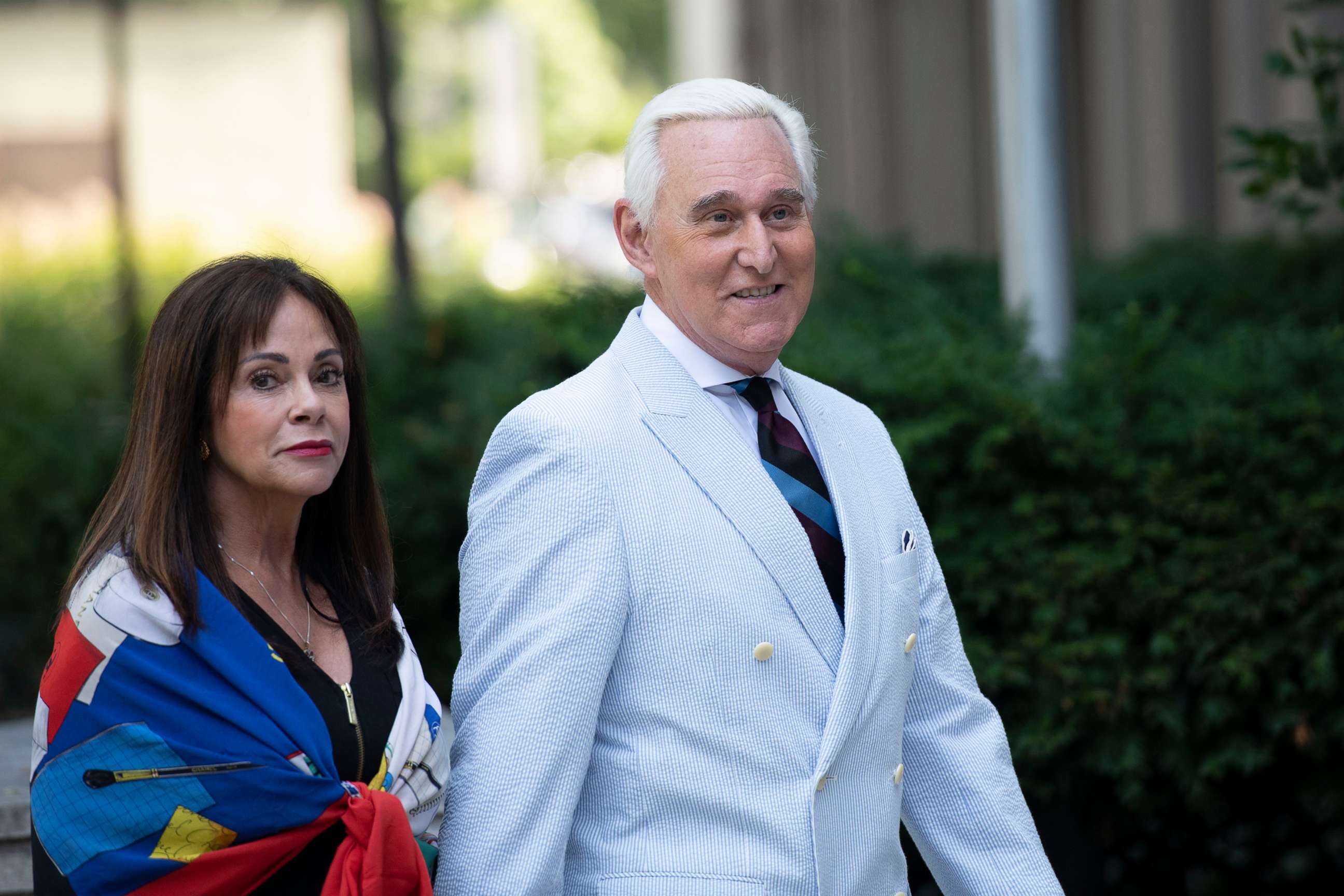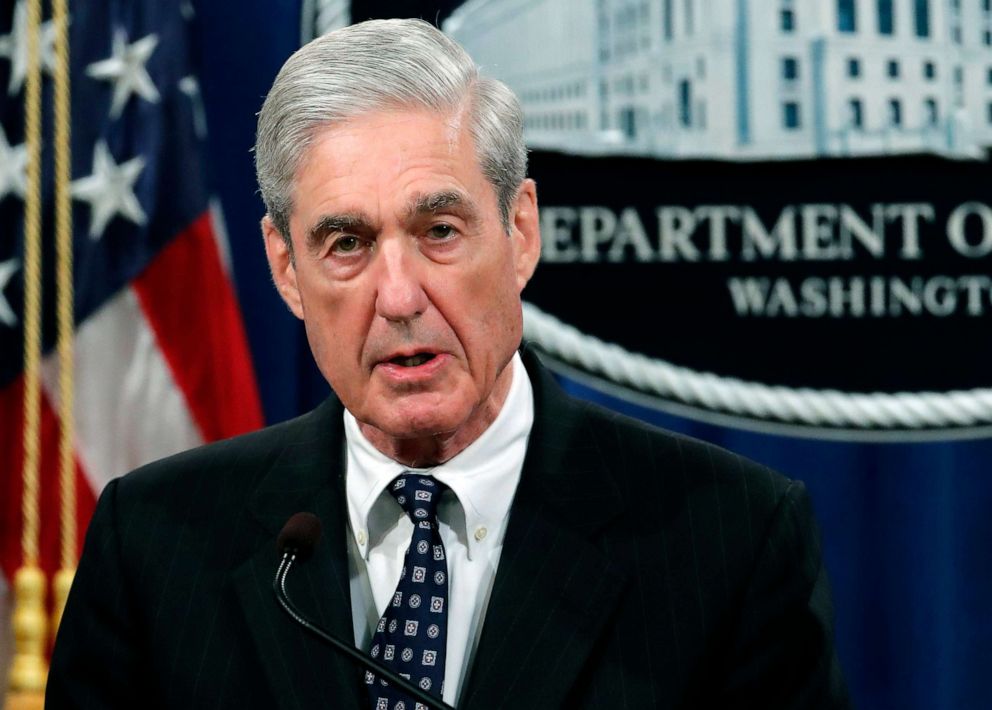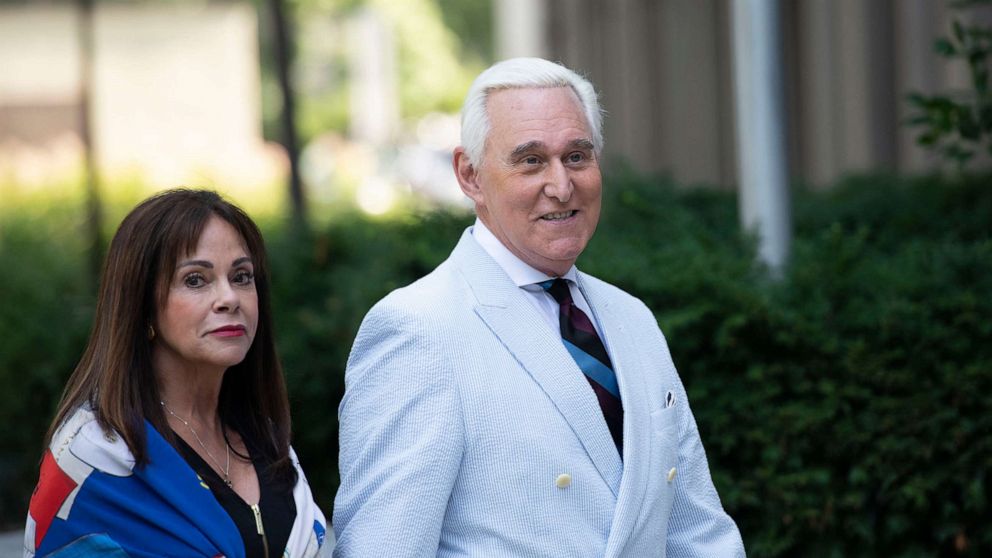Judge finds longtime Trump confidante Roger Stone in violation of gag order
A federal judge has banned Roger Stone, the longtime confidant to President Donald Trump, from using social media after finding him in violation of a court-issued gag order on Tuesday.
In doing so, U.S. Judge Amy Berman Jackson ordered Stone not to "post or communicate on Instagram Twitter or Facebook in any way on any subject."
"It seems as if once again I am wrestling with behavior that has to do more with middle school than a court of law," Jackson said Tuesday. "Whether the problem is that you can't follow simple orders or you won't, I need to help you out."

Tuesday's hearing reflected an ongoing dispute over Stone's rabble-rousing presence on social media.
In February, Stone targeted Jackson in an inflammatory Instagram post that resulted in her putting him under a gag order, officially preventing him from speaking publicly about the case. In March, after Stone's publisher re-released one of his books with fresh criticism of special counsel Robert Mueller, Jackson warned him of the "cost and consequences" of violating her order.
Mueller indicted Stone in January on five counts of lying to Congress, witness tampering and obstruction of justice. Stone has pleaded not guilty to all seven counts, and his trial is expected to begin in November. The charges brought by Mueller's office largely revolve around false statements Stone is accused of making to the House Intelligence Committee regarding his communications with associates about Wikileaks during the 2016 presidential campaign.

During a lengthy dressing-down of the political provocateur and his legal team on Tuesday, Jackson walked through several instances in which Stone made comments to reporters and posted to social media about matters surrounding his case. The judge cited specific images Stone posted to Instagram, including a photo of Rep. Adam Schiff, D-Calif., with the label, "Bull Schiff."
Last month, government prosecutors filed court documents asking the judge to reconsider the terms of Stone's release as a result of those social media posts, which "risk tainting the jury pool," prosecutors wrote at the time.
On Tuesday, federal prosecutor Jonathan Kravis argued that Stone's social media posts "clearly violate" the court's gag order.
"These most recent posts are based on what we believe are factual misrepresentations in a defense filing about a subject that is not actually relevant to the trial," Kravis argued, "but that threatens to contaminate the jury pool."
Kravis proposed that the court revoke Stone's access to social media, but stopped short of asking Jackson to send Stone to pre-trial detention.

Jackson considered prosecutors' accusations from the bench on Tuesday, probing Stone's legal team to explain how the posts do not violate the gag order.
"Was there anything unclear about my order?" she asked repeatedly of Stone's attorney, Bruce Rogow.
Meanwhile, defense counsel for Stone sought to tamp down Jackson's visible frustration while defending their client.
"From the tone of your questions, I get the sense that you are not happy with Mr. Stone," Rogow said, but argued that "this is not a violation of the court order."
Rogow said he planned to formally submit a request to have the judge dismiss his gag order entirely, arguing that "the whole underlying premise, I think, is a false premise to begin with."
A skeptical Judge Jackson warned Rogow, "you've got a tough road to go there."
After court adjourned, ABC News asked Stone for his reaction to the expanded gag order preventing his social media use.
"I'm sorry, I can't speak to that on the court house property," Stone replied.




